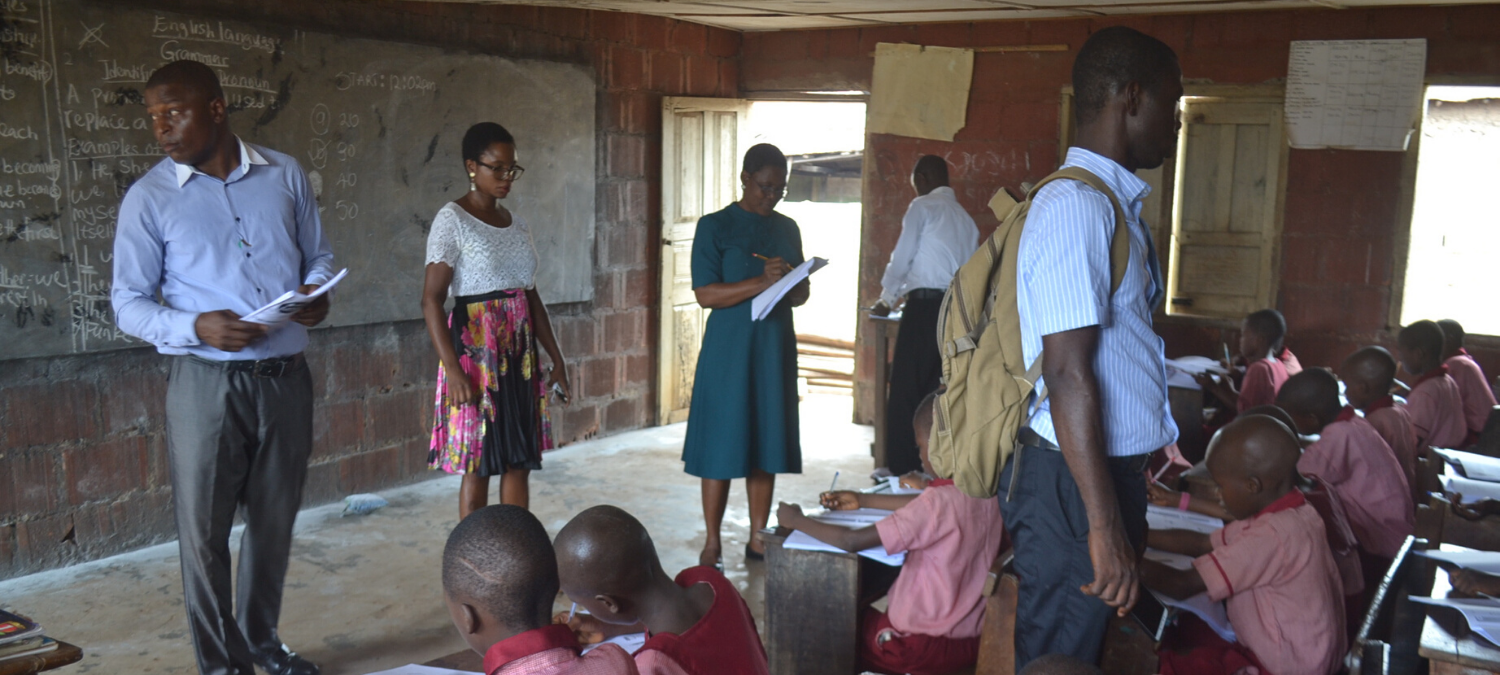In Nigeria, currently no national learning assessment programme feeds into the educational planning cycle. However, this could soon change with the implementation of a new learning assessment for the end of primary school, an idea first proposed to the Minister of Education of Nigeria by participants of the 2016 IIEP MOOC on learning assessments.
The International Association for the Evaluation of Educational Achievement (IEA), the Universal Basic Education Commission (UBEC), the National Institute of Educational Planning and Administration (NIEPA) and the International Institute for Educational Planning (IIEP) are working together to implement IEA’s Literacy and Numeracy Assessment (LaNA) in Ondo, Nigeria.
During a five-day workshop hosted by NIEPA, from 21-25 October 2019, participants worked on identifying general policy concerns about the quality of learning in Nigeria, specific research questions and the implementation of the IEA’s LaNA. Predominately devised for the fourth grade, this short assessment for the end of primary school targets countries where IEA’s TIMSS and PIRLS may be too difficult to implement. However, according to the IEA, developing education systems can also use the LaNA as a stepping-stone towards other international assessments. The LaNA will also help Nigeria monitor progress on achieving the fourth Sustainable Development Goal for equitable and inclusive education for all. Nigeria is now the third country to pilot the LaNA, after Haiti and Punjab, Pakistan.
During the opening ceremony, IEA’s Sebastian Meyer said the project aims to initiate a transformation towards system level assessment in Nigeria. He also said the project would develop the capacities of education officers in 18 Nigerian states.
In the absence of a systematic national learning assessment system to inform policy and planning, NIEPA’s coordinator programmes, Olatoun Akinsolu, speaking on behalf of its Director General, Lilian Salami, said that this project would inform critical policy decisions in the education sector.
Mioko Saito, Head a.i. of IIEP’s Training and Education Programmes, said that upon completion of this training participants would have a better understanding of how to monitor and evaluate learning outcomes through the use of learning assessments. She also welcomed the fact that this project was bringing together a variety of stakeholders, including both planners and those working with assessments.


